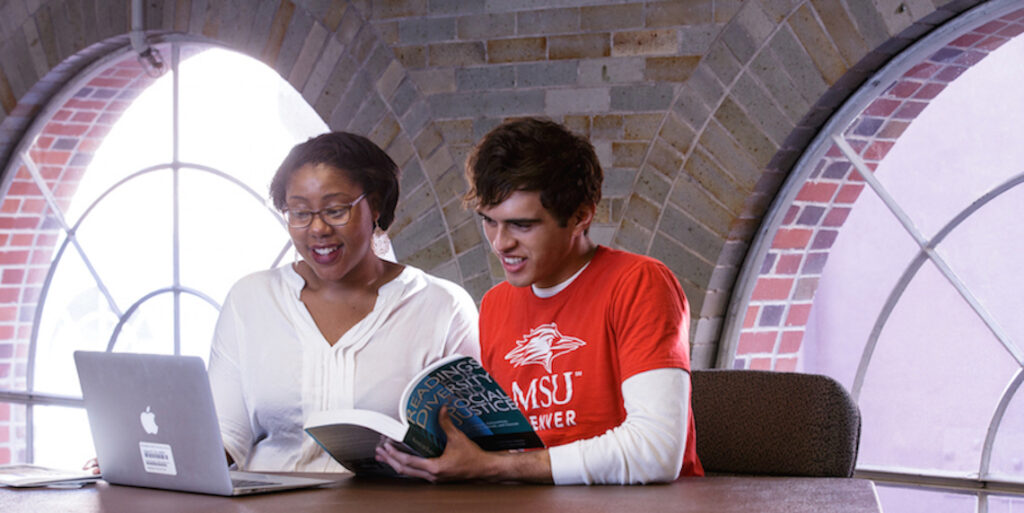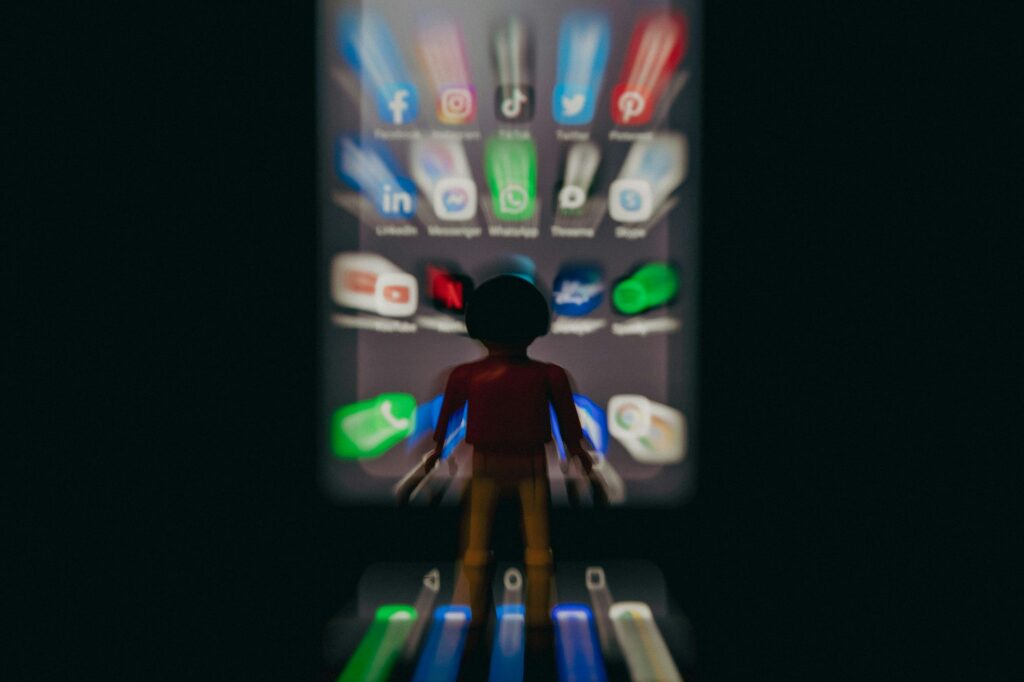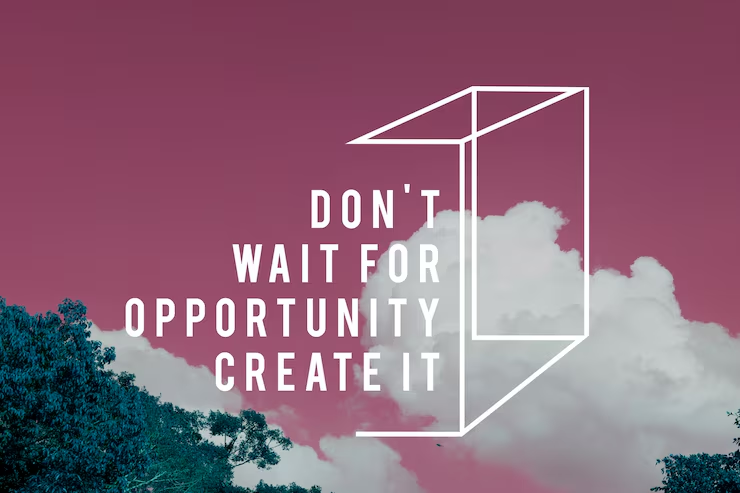Studies show that approximately 33.19 million Americans, or 10% of the population, have social media addiction. While there are benefits to social media, like providing opportunities and keeping us informed, the problem lies in it when it becomes an addiction. At that point, it starts taking away from other important aspects of life. Like anything, a balance is best, or even to be able to return to a time when it wasn’t so excessive.
Many of us experience mindless scrolling where we aren’t even consciously engaged. We didn’t set out with a plan to watch reels for three hours; it just happened, right? Sometimes it feels like we can’t even be on our own. We often feel the need to fill the gaps between tasks, but sometimes those in-between moments take over and prevent us from completing what truly matters. The real problem begins here.
Table of Contents
The Dark Side of Social Media
Social media often depicts only the best moments in people’s lives, leading to constant feelings of pressure to live a better lifestyle, achieve unrealistic beauty standards, and feel the need to validate our experiences. We may experience persistent feelings of invalidation, leading to ultimately feeling inadequate.
There are serious psychological and emotional effects of social media on the mind and soul. Social media platforms are linked to anxiety, depression, body-shaming issues, and eating disorders. Body dysmorphia continues to become prevalent as people compare themselves to display unrealistic portrayals online.
As the influences of social media extend over time, they have the potential to impact our lives in a variety of ways. For example, we have given up hobbies and activities that promote well-being in real life and have largely neglected our in-person interactions. The constant distraction also shortens attention spans, making it harder to focus on important tasks.
Moreover, excessive internet usage can lead to costly habits such as overspending on shopping or dining out, further straining finances and mental health. It also comes with the challenges of cyberbullying, privacy concerns, deepfakes, and misinformation, all of which can harm individuals and communities alike.
Many people turn to social media as a coping mechanism to escape reality. However, instead of resolving their issues, this behavior piles up problems, creating a cycle that becomes even harder to break over time.
Causes of Social Media Addiction
One of the principal factors that contribute to social media addiction is the immediate gratification and affirmation that social media platforms provide. These platforms use your psychology, tapping into the brain’s reward system. When a person receives a like or comment, it releases dopamine, reinforcing the pleasure-seeking cycle so that you come back for more.
Social media feeds are personalized to show what you “like,” providing a never-ending feed of content. On the other hand, real-world experiences move slower and can be much less stimulating in comparison.

Low self-esteem, loneliness, and isolation are often hidden behind an online presence, receiving immediate validation. The fear of missing out (FOMO) is also a major influence on users maintaining their social media habit. For creators, it’s the engagement that makes them stay engaged on social media.
How to Know It’s Time To Stop
Things can get difficult when scrolling becomes something you just can’t break away from – even if you know you should. Social media has a way of pulling you in, and suddenly, 3 hours have passed. Often, for many people, it’s hard to tell when scrolling has become a problem—or to admit that it has.
You may find yourself feeling anxious or wired when you go offline, compulsively checking so you don’t have “FOMO,” and real-life responsibilities start to slip – work, relationships, even sleep. It’s exhausting.
We totally get it – the pressures of everyday life can be overwhelming, and social media seems like a quick escape. However, there are definitely better and healthier ways to deal with those feelings. Healthy coping strategies will help, rather than leaving even more weight on your shoulders.
How to Quit Social Media
Let’s face it—quitting social media isn’t just a click of a button or a flip of a switch. Even if you’re not a full-blown addict, you’re probably going to feel the withdrawals. But you’ve taken the first step, and it’s a big step, and it doesn’t have to be an all-or-nothing decision. Start small.
Acknowledge the Reality
You will feel weird. You will feel out of the loop. Allow yourself to feel uncomfortable for a little while. You will eventually see that life keeps going—not only that, it gets better. You will find yourself being more present and more productive and experiencing real value in what matters in your life.
Identify Your Why
Before you shut it down for good, take a second to clarify why you are choosing to quit or at least step away from social media. Clarifying your “why” will allow you to own it. Write it down, if it’s catching up with your daughter and the kids, if it’s wanting to reclaim your time, or if it’s you simply needing a mental reset—own it.

And when you really feel the urge to scroll (and you will), you can remind yourself of your “why” and the deeper reason you chose to quit—not that you feel hurt by scrolling on social media, but you are making a choice about yourself; you are doing this for your own well-being. Start tracking how social media makes you feel doubly. Maybe you can use it if you choose to pick it back up.
Recognize What You’ll Miss
The truth is that quitting doesn’t mean you won’t miss out on some things. It could be the way you communicate with your friends, the news you consume, or your participation in particular communities. And that’s okay. Think about what you’re leaving behind that you’ll miss the most, and get connected to how you feel about those connections.
Then ask yourself, can I shift this for something more fulfilling? Maybe it’s texting a friend directly, subscribing to a newsletter, or tackling something new as a hobby; you will begin to see other opportunities to fill that space in ways that make sense for you.
Turn Off Notifications
The first step is really easy with little effort: just turn off notifications. Most notifications are a distraction and come with an unnecessary sense of urgency. You absolutely don’t need to know someone liked your post at that moment in time.
When you reduce notifications and the overwhelming dopamine that comes with the constant buzzing, it reduces your mental clutter and the behavior of churn-checking. It is amazing how the impulse to check, and then check again, dissipates. Pro tip: Use daily limits or app timers to gently remind yourself to sign off and take a break!
Log Out or Uninstall Unnecessary Apps
For apps that are not critical for keeping in touch with important people or managing day-to-day activities, if it’s worthwhile, consider deleting them altogether. Make it harder to access social media and help resist temptation. Increasing the distance between you and your social accounts is something that allows you to slow down and make a conscious decision about logging back in.
You can also delete bookmarks, log out, deactivate profiles, or even deactivate accounts to reduce the temptation. A valuable resource could be one of those content blockers or focus modes, where you block distracting sites. Consider only using your social media on one device, and also block distracting content such as celebrity or unrelated content.
Find New, Meaningful Activities
Now that you’ve cut down on your social media usage, you need to fill the gap with healthier activities. This is key to ensuring you don’t feel like you’re missing out. Replacing mindless scrolling with meaningful pursuits will keep your mind occupied in a positive way.

Whether it’s rediscovering old hobbies, exercising, meditating, reading, or catching up with friends and family, these activities can help reduce anxiety and boost your well-being. You may even find that you grow as a person by engaging in these fulfilling offline activities instead of the constant digital distractions.
By following these steps to gradually disconnect from social media, you create the space to rediscover what truly matters and focus on personal growth.
Break the Cycle!
Quitting social media can be tough, but it’s a step towards reclaiming your time, mental peace, and real-life connections. By consciously limiting usage and replacing it with meaningful activities, you’ll not only break free from the digital cycle but also unlock the potential for a more balanced and fulfilling life. It’s time to choose quality over quantity and start living with intention.
Have a great idea? Let EvolveDash bring it to life! We specialize in empowering businesses with innovative digital solutions. We create custom mobile apps and build user-friendly websites, providing tailored solutions to meet your needs.
With over 100 satisfied clients and 450 successful projects, our team has the expertise needed to help your business stand out in a competitive market. Reach out to us today!
FAQs
- How do I know if I’m addicted to social media?
Signs of social media addiction include compulsive use, anxiety when you’re not online, neglecting real-life responsibilities, and feeling constantly pressured to stay up-to-date. If you find it hard to disconnect or feel stressed without it, it might be time to reassess your habits.
- What should I do if I get the urge to check social media?
When the urge hits, pause and take a few deep breaths. Try to redirect your attention to an activity or hobby that engages you. You can also use the time to reflect on why you’re trying to reduce your social media usage and remind yourself of your goals.
- Can I quit social media without deleting my accounts?
Yes, you can take a break without deleting your accounts. Consider deactivating them temporarily, disabling notifications, or using apps that block social media. This allows you to step away while still having access if needed in the future.
- How can I stay informed without social media?
You can stay updated by subscribing to newsletters, following blogs, using news apps, or relying on direct communication with friends and family. This way, you won’t miss out on important updates without the distractions of social media.



















